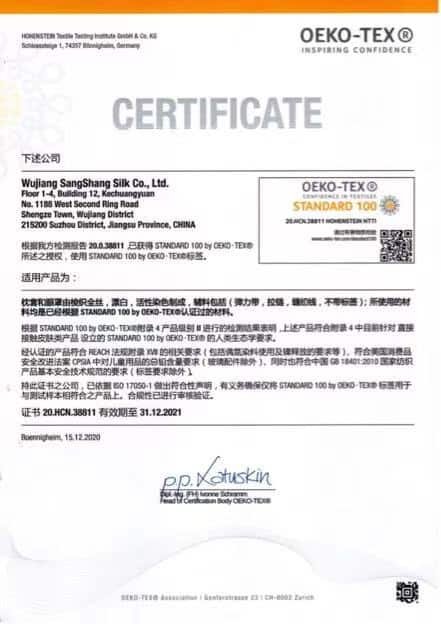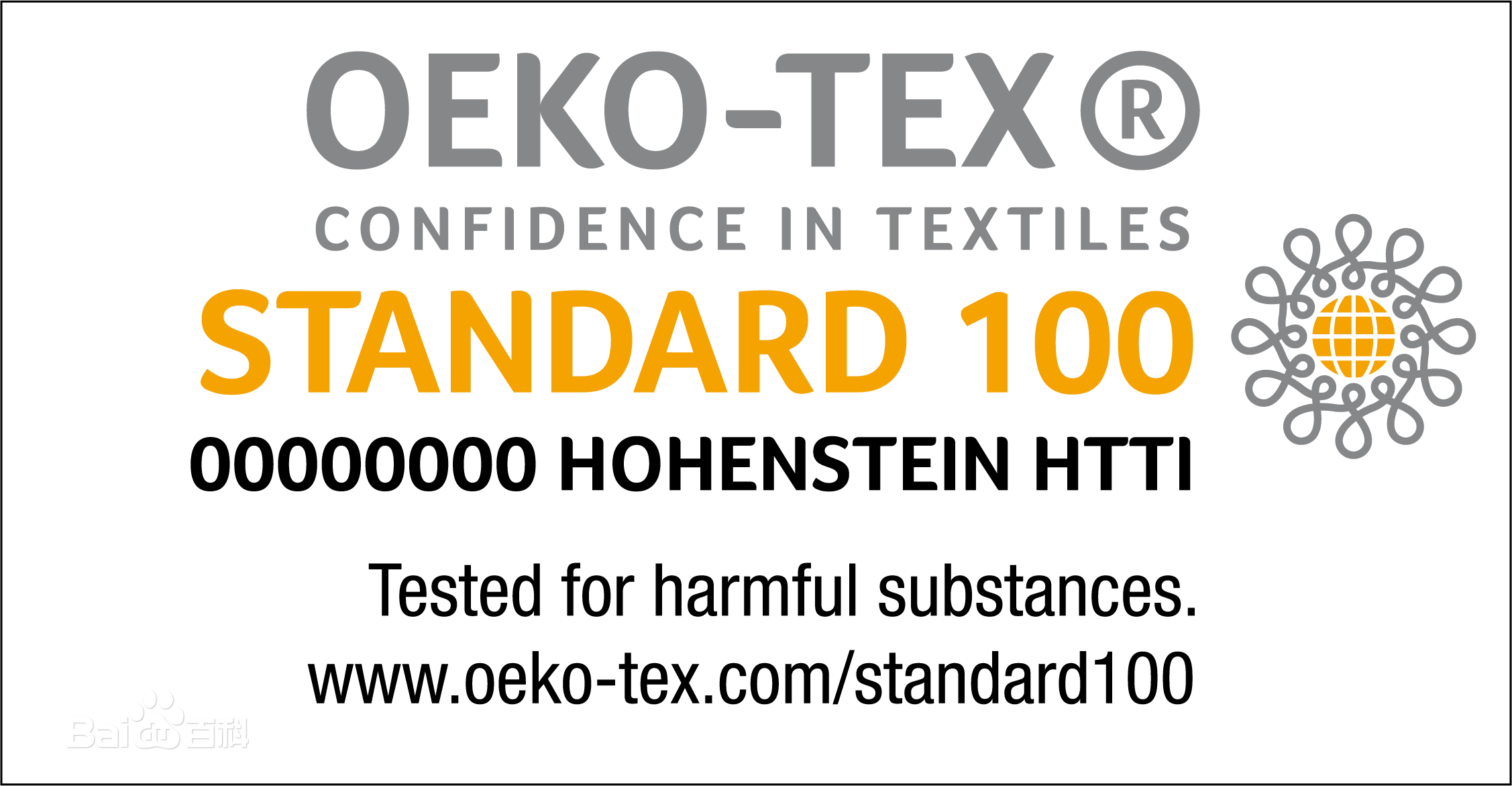OEKO-TEX is a registered trademark that represents the company certifications, product labels, and all other services carried out by the International Association for Research and Testing in the Field of Textile and Leather Ecology. They are continuously developed to improve the value limits and test methods for the leather and textile industry.
With its headquarters in Zurich, Switzerland, the International Association for Research and Testing in the Field of Textile and Leather Ecology, also known as OEKO-TEX, was founded in 1992. The Australian Textile Research Institute and the German Hohenstein Institute are the founding members of the association.
The association currently consists of 18 independent institutes in Japan and Europe, and these institutes are saddled with the responsibility of developing test methods and limit values from which OEKO-TEX sets the basis of its standards. These member institutes have contact offices around the world in over 70 countries that are accessible for leather and textile tests.
The member institutes are namely.
- AITEX in Spain
- Centexbel in Belgium
- Centrocot in Italy
- CITEVE in Portugal
- DTI Danish Technological Institute in Denmark
- FILK Research Institute for Leather and Plastic Sheeting in Germany
- Hohenstein Textile Testing Institute in Germany
- IFTH in France
- INNOVATEXT in Hungary
- IW Textile Research Institute in Poland
- MIRTEC S.A. in Greece
- Nissenken Quality Evaluation Center in Japan
- OETI Institute for Ecology, Technology and Innovation in Austria
- Pruf- und ForschungsinstitutPirmasens e. V. in Deutschland
- RISE IVF AB in Sweden
- Shirley Technologies Limited in the United Kingdom
- Testex AG, Swiss Textile Testing Institute in Switzerland
- VUTCH-CHEMITEX, spol. s r.o. in Slovakia
- OEKO-TEX CERTIFICATES
There are several certifications handled and handed out by OEKO-TEX; they are
STANDARD 100 BY OEKO TEX: This label certifies that any product bearing it has had all of its components tested for harmful substances, and it has been proven to be harmless to human health. The components tested include buttons, threads, and other accessories. The test is conducted based on OEKO-TEX’s criteria catalog that is updated once a year at least and expands with the emergence of new scientific knowledge or statutory requirements.
All textile products at every processing stage are eligible for STANDARD 100 certification. Before granting the final product a STANDARD 100 label and branding it as a trusted product, every single component has been tested according to the applicable criteria.
The requirements and limit values differ based on the intended use of the product which is known as a product class. The various product classes are
- Product class 1: products used for babies. There have the strictest limit values and requirements
- Product class 2: products with direct contact to the skin such as shirts, blouses, underwear, etc.
- Product class 3: products with little or no skin contact such as vests, belts, etc.
- Product class 4: accessories and products for decoration such as curtains, table cloths, etc.
STeP by OEKO-TEX: Sustainable Textile & Leather Production (STeP) is a thorough analysis and assessment of the conditions of production of a company. STeP is focused on certifying an environmentally friendly production process, optimum health and safety, and social working conditions. All processing levels of textile manufacturers can be tested and certified. STeP is carried out using 6 modules:
- Chemical management
- Environmental performance
- Environmental management
- Social responsibility
- Quality management
- Health protection and safety at work
MADE IN GREEN by OEKO-TEX: This label verifies that its bearer has been tested for harmful substances and that the product was manufactured under working conditions that are socially responsible with sustainable processes. The certification for being harmless and that of the working conditions and process are carried out following the STANDARD 100 by OEKO-TEX and STeP by OEKO-TEX, respectively.All types of leather and textile products such as fabrics, home textiles, leather clothing, and non-wovens, leather accessories (bags, shoes, and gloves) are eligible for this label. The product must have successfully undergone the aforementioned certification processes before it can be granted this label. This label is traceable.
LEATHER STANDARD by OEKO-TEX: This label, whose certification test is based on the OEKO-TEX criteria catalog certifies that the product bearing the label has passed the test for chemicals that are detrimental to health. The criteria catalog contains several individual regulated substances, and OEKO-TEX’s limit values and criteria catalog are stern when compared to the international and national specifications. Taking note of the latest findings in the science world and legislation changes, the OEKO-TEX test criteria is updated at least once a year, and it has various contents for protecting health.Leather products from all levels of processing, such as leather clothing, leather accessories, etc., are eligible for the test. Leather from exotic animals such as snakes, armadillos, and crocodiles are not certified. Textile and non-textile components of a leather product are tested based on the STANDARD 100 by OEKO-TEX criteria.
DETOX TO ZERO by OEKO-TEX: Intending to remove hazardous chemicals from the production of textile, Greanpeace launched a DETOX campaign in 2011. DETOX TO ZERO by OEKO-TEX is based on that campaign, and it provides a practical and usable assessment tool to producers of textile and leather to help regulate the use of hazardous substances. It focuses on
- The conformity of wastewater and sludge with the DETOX TO ZERO Manufacturing Restricted Substance List (MRSL)
- Conformity of the chemicals the company uses with the DETOX TO ZERO MRSL
- General management of environmental and chemical performance.
- This assessment process is not a conventional certification system. Therefore, producers do not pass or fail when the DETOX TO ZERO analysis and assessment tool is used. The aim is to continuously improve the process.
ECO PASSPORT by OEKO-TEX: This ECO PASSPORT label certifies leather and textile chemical to be free of harmful substances in high concentrations, as the ECO PASSPORT standards state. This certification system that was made for manufacturers of chemical compounds and process chemicals also validates products that meet the leather manufacture and ecologically responsible textile criteria. The limit values and banned substances are updated once a year and are expanded based on new scientific findings or statutory requirements.All chemical, auxiliaries, and colorants involved in the textile and leather materials manufacturing process are eligible for this test.
CERTIFICATION PROCESS
For the certification of a leather or textile article by OEKO-TEX, samples of all the components must be supplied by the manufacturer at one of OEKO-TEX’s member institute laboratories for analysis. After being tested successfully to comply with OEKO-TEX’s standard, and the declaration of conformity is signed, then the certificate is issued.
Shortly before or after the certificate is issued, the production facility is audited as part of the process, and audits are done at least every three years after that.
25% of all the STANDARD 100 and LEATHER STANDARD issued certificates are checked annually, and unannounced visits are also carried out.
CONCLUSION
With the help of OEKO-TEX’s testing and certification processes, consumers are guaranteed maximum security, and the production companies are made to take responsible decisions.
The below OEKO-TEX certificate is from our silk fabric manufacturer .




